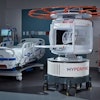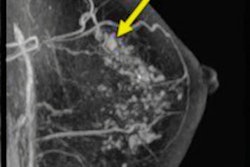Dear MRI Insider,
Patients with hepatocellular carcinoma are often treated with percutaneous microwave ablation, and the treatment is usually successful. But recurrence can occur, and it is associated with poor prognosis.
A team of Chinese researchers have developed a clinical algorithm that includes data from multiparametric MRI to help predict which patients may respond well to ablation and which may be at higher risk of recurrence. Find out what the group has discovered in this edition's Insider Exclusive.
Predicting liver cancer recurrence is a key clinical task, as evidenced by another recent study conducted by researchers from Yale University. This group found that the combination of machine learning with MRI findings also proved successful in forecasting secondary disease, and it could even help identify which patients would most benefit from a liver transplant.
In addition to MRI's role in predicting cancer recurrence, we're also highlighting the following stories:
- MRI identifies signs of early aging in people with poor heart health.
- Artificial intelligence can improve MRI's performance for visualizing pathology on brain exams and help MRI identify social anxiety in young adults.
- Precompetition MRI could keep Olympic athletes in play and the modality is a useful tool for evaluating athletes for myocardial strain after they've had COVID-19.
- Assessment of the level of background parenchymal enhancement on surveillance MRI could tailor follow-up in women who have already been treated for primary breast cancer.
- MRI works with CT for planning breast cancer treatment.
Finally, take a look at our report on a patient with head and neck cancer who received the first titanium lower jaw -- created from MRI scan data, of course.
We invite you to keep current on MRI's many contributions to patient care -- and its cutting edges -- by regularly visiting our MRI Community.




.fFmgij6Hin.png?auto=compress%2Cformat&fit=crop&h=100&q=70&w=100)




.fFmgij6Hin.png?auto=compress%2Cformat&fit=crop&h=167&q=70&w=250)











